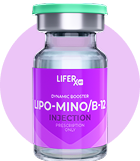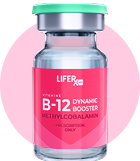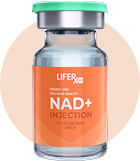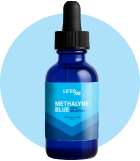Understanding GLP-1
GLP-1 analogs is a class of medication primarily used to treat type 2 diabetes. However, it has also been approved by the U.S. Food and Drug Administration (FDA) for weight management. It works by regulating blood sugar levels and influencing appetite control. When used for weight loss, GLP-1 can help you eat less by making you feel full, leading to reduced calorie intake.
Tips for Maximising Weight Loss with GLP-1
Consult a Healthcare Professional:
Before starting any medication, including GLP-1, it’s essential to consult with a healthcare professional, such as a doctor or a registered dietitian. They can evaluate your unique health conditions and provide personalized guidance on whether GLP-1 is a suitable option for you.
Follow the Prescribed Dosage:
GLP-1 is available in different formulations and dosages. Make sure you take the prescribed dosage as directed by your healthcare provider. It’s crucial to adhere to the recommended regimen to achieve the best results.
Combine GLP-1 with a Balanced Diet:
While GLP-1 can help control your appetite, it’s essential to pair it with a healthy, balanced diet. Focus on consuming a variety of nutrient-dense foods, such as fruits, vegetables, lean proteins, whole grains, and healthy fats. Avoid excessive consumption of high-calorie, low-nutrient foods.
Portion Control:
Even with the appetite-suppressing effects of GLP-1, portion control remains vital. Measuring your food portions can help prevent overeating and ensure you are consuming the right amount of calories for your weight loss goals.
Stay Hydrated:
Drinking enough water is crucial for overall health and can also help with weight loss. Sometimes, the sensation of thirst is confused with hunger. Staying well-hydrated can help you avoid unnecessary snacking.
Regular Physical Activity:
Incorporating regular physical activity into your routine can significantly boost your weight loss efforts. Aim for a combination of cardiovascular exercises, strength training, and flexibility exercises to help maintain muscle mass and burn calories.
Monitor Your Progress:
Keep track of your weight loss progress by maintaining a journal or using a tracking app. Regularly checking in on your achievements can provide motivation and keep you on course.
Consider Support Groups or Counseling:
Weight loss can be a challenging journey, and it’s helpful to seek emotional and psychological support. Joining a support group or consulting a counselor can provide you with valuable resources for managing the emotional aspects of weight loss.
Stay Informed:
Stay informed about any updates or changes in your treatment plan. It’s important to keep communication open with your healthcare provider to ensure that your medication and diet plan are still appropriate for your goals and health status.
Be Patient and Realistic:
Weight loss is a gradual process, and everyone’s body responds differently to medications and lifestyle changes. Set realistic expectations and be patient with yourself. Celebrate small victories along the way.
Conclusion
GLP-1 can be a valuable tool in your weight loss journey, but it’s most effective when used in combination with a healthy diet and lifestyle. Always seek professional guidance, and remember that long-term success in weight management often involves sustainable changes to your daily habits. With the right approach, GLP-1 can be a step towards achieving your weight loss goals and improving your overall health and well-being.


















